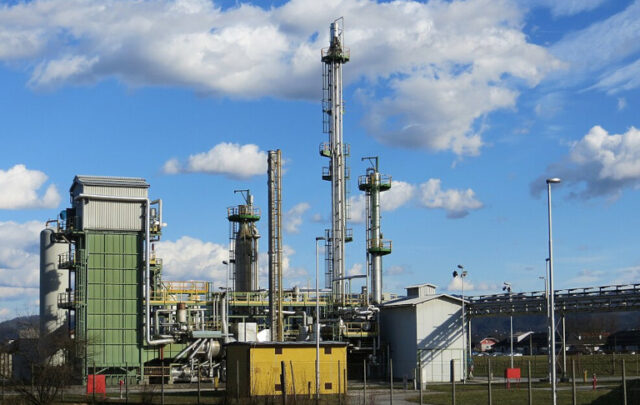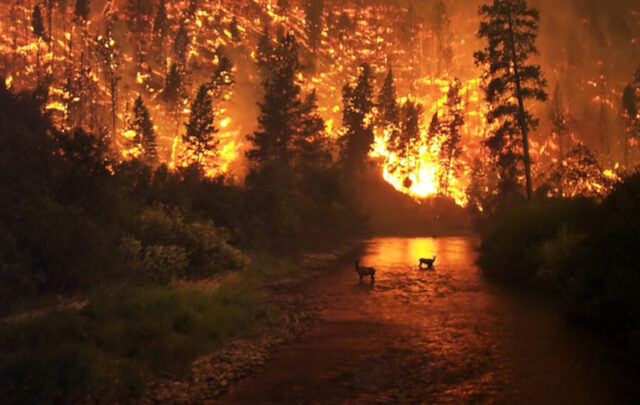Click on the headline (link) for the full text.
Many more articles are available through the Energy Bulletin homepage
Will Mexico be ready when oil runs dry?
Augusta Dwyer, Globe and Mail (US)
When a Yucatan fisherman named Rudecindo Cantarell first noticed oil bubbling up into the waters of Campeche Sound in 1976, Russia was still Communist, Rocky won the Oscar for best picture and the notion of a political party other than the Institutional Revolutionary Party running Mexico unimaginable.
Thirty years on, the Cantarell field — second in size to Saudi Arabia’s Ghawar complex and source of 60 per cent of Mexico’s total production — has begun to decline.
From a 2004 peak output of more than 2.1 million barrels of oil a day, Cantarell is down to 1.8 million b/d today, and will continue to diminish in the coming years. And its waning only seems to underscore the challenges facing the country’s monopolistic state-run oil giant, Petroleos Mexicanos.
The world’s third-largest oil producer, Pemex “has no real prospects to substitute for Cantarell,” oil analyst David Shields says.
(14 Nov 2006)
Mexico’s energy crisis has arrived
Annette Hester, Macleans Magazine (Canada)
Mexican president-elect Felipe Calderón was in Canada last week to meet his NAFTA counterpart, talking trade and co-operation. Behind the smiles and warm words, however, there are serious questions brewing about just how Mexico will deal with a burgeoning energy crisis. Simply put, Mexico is running out of oil, and that could put extraordinary pressure on Canada and upset the global energy scene.
Canada and Mexico are the top two suppliers of oil to the U.S., with exports of 2.1 million and 1.8 million barrels a day respectively, but the two countries are worlds apart in the development of their energy resources. Canada has fostered development of its reserves, and is about to increase its production substantially. Mexico, on the other hand, has the potential to be an energy powerhouse, but has allowed oil and gas exploration and production to be hamstrung by history and outdated national economic policies.
(11 Nov 2006)
Feeding frenzy for Africa oil fields gathers pace
James Macharia, Reuters
CAPE TOWN – Africa accounts for only around 10 percent of world oil reserves but the continent is the focus of a feeding frenzy among energy companies that is just beginning in countries like Libya and Angola.
Crisis in Iraq, concerns about energy nationalism in parts of South America and difficulties investing in Russia have limited exploration in those areas and kept interest in Africa bubbling, speakers said at the Africa Upstream oil conference in Cape Town, which ended on Friday. ..
“Oil majors do not have unmitigated access to reserves in the world, think Venezuela, think Russia, think Iraq,” said Duncan Clarke, chairman and chief executive officer of Global Pacific and Partners, which organised the three-day conference.
(17 Nov 2006)
Uganda, Emulate Libya And Use Oil to Reduce Poverty
New Vision/All Africa
As oil exports from sub-Saharan Africa has increased, so has the poverty in the oil exporting countries. This is because of corruption in governments has resulted in little investment of oil revenue in programmes that would improve the quality of life of their citizens.
For example, Nigeria and Angola are large oil exporters. Nigeria has banked over US $3,000 billion in oil revenue in the past 25 years, yet 70 percent of its citizens live on less than $1 a day. In Angola, the Human Development index puts life expectancy at 45 years and 68 percent of its citizens are living in poverty. Yet Angola pumps out nearly a million barrels each day and has seven billion barrels in reserve.
In many of these countries, citizens have no mechanism to hold their governments accountable for using oil revenues to enrich themselves and their cronies. As a result, corrupt leaders get richer while their citizens get poorer.
President George Bush’s proposal to increase US aid to Africa by 17 percent can help reverse this devastating trend. ..
In 1969, junior officers led by Muammar Gadaffi overthrew King Idris while on a visit to Turkey. Under Gadaffi, the country was declared an Islamic republic. Gadaffi’s Al Fattah revolution has brought about rapid social and economic development, offering its people a high standard of living. ..
Today, Libya is among the richest countries on the African continent, which Uganda can emulate and even do better if the present and any successive governments are committed.
(16 Nov 2006)
Curiously split opinion piece that seems to see no conflict between Libyan resource nationalism and American paternalism. Libya might now be a ‘friendly’ as it embraces foriegn investment, but for a few decades there it was a “leading terrorist nation” according to Western governments and media.-LJ
Big Oil headed for tougher Congress
Ron Scherer, Christian Science Monitor
Democrats may repeal tax breaks for oil companies and propose their own energy package.
—-
So far this year, 40 bills have been introduced in Congress about alleged gasoline price gouging. Twenty-one bills have addressed windfall profits by oil companies. Few have gotten past the press-release stage.
But next year, Big Oil is likely to feel as if it’s wearing one of those “kick me” signs.
The Democratic leadership has already indicated it will try to repeal earlier tax breaks for oil companies. A gusher of new legislation could develop as well, as Democrats get a chance to see their energy bills move past the trash can. In fact, the Democrats will try to put together their own version of a comprehensive energy bill that tackles everything from gas-mileage standards to tax breaks for alternative energy sources, some congressional analysts believe.
(15 Nov 2006)
Australia’s Woodside cuts 2006 output target
Stuff.co.nz/Reuters
Woodside Petroleum Ltd, Australia’s top independent oil and gas company, said on Thursday it had cut its 2006 production target due to technical problems at some wells, but forecast a rebound in 2007.
Woodside said its 2006 production would be 67-68 million barrels of oil equivalent (boe) from a previous target of 72 million, but it saw 2007 output rebounding to a range of 75-80 million boe.
The company had warned in October it may struggle to meet its previous 2006 target due to problems at some of its projects, including delays to completion of its Otway project in the southern state of Victoria. ..
The company also said output from its Chinguetti project in the Gulf of Mexico is expected to halve and the project costs are 12 per cent over budget, but did not give a timeframe for the output reduction. ..
(16 Nov 2006)





